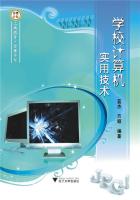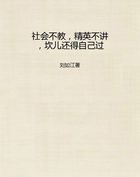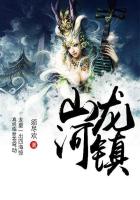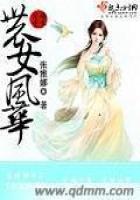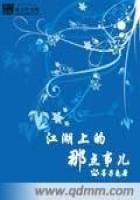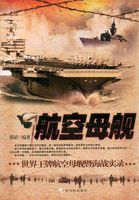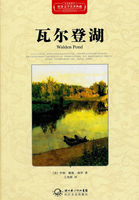Confronted by this divided attitude, the United States sought to win over but not to compel.Nothing more completely met American views than that each power should maintain for itself the principles of the Monroe Doctrine by excluding foreign influences.Beyond that the United States sought only friendship, and, if it were agreeable, such unity as should be mutually advantageous.In 1906 Elihu Root, the Secretary of State, made a tour of South America with a view of expressing these sentiments;and in 1913-1914 ex-President Roosevelt took occasion, on the way to his Brazilian hunting trip, to assure the people of the great South American powers that the "Big Stick" was not intended to intimidate them.Pan-American unity was still, when President Taft went out of office in 1913, an aspiration rather than a realized fact, though the tangible evidences of unity had vastly multiplied since 1898, and the recurring congresses provided a basis of organization upon which some substantial structure might be built.
The United States had sincerely hoped that Mexico, like the "A.B.C." powers, was another Latin American power which had found itself.Of all it was certainly the most friendly and the most intimate.The closeness of its relations with the United States is indicated by the fact that in the forty years between 1868 and 1908, forty agreements, treaties, and conventions had been concluded between the two countries.Nor was intimacy confined to the Governments.The peace arranged by President Diaz had brought foreign capital by the billion to aid the internal development of the country, and of this money more had come from the United States than from any other nation.Nor was it financial aid alone which had gone across the border.There was but little American colonization, it is true, but business managers, engineers, mine foremen, and ranch superintendents formed thousands of links binding the nations together.The climax of intimacy seemed reached when, in 1910, a general treaty of arbitration was made after President Taft and President Diaz had met at El Paso on the Mexican border in a personal conference.A personal interview between the President of the United States and the chief of a foreign state was almost unique in American history, owing to the convention that the President should not depart from the national territory.
It was, therefore, with a bitter sense of disappointment that Americans heard of the revolution inaugurated in 1910 by Francisco Madero.In common with France, Spain, Great Britain, and Germany, the United States was disturbed for the safety of the investments and persons of its citizens.The Government was also concerned because the points of first and most persistent fighting were where the various railroads crossed the American boundary.This circumstance brought the whole border within the range of disturbance.The Government was apprehensive, too, as to the effect of long-continued war upon territories within the circle of its chief interest, the Caribbean area.Yet, when the first surprise caused by the revolution had passed and the reason for the outbreak was perceived,--the fact that the order and apparent prosperity of the Diaz regime had been founded upon the oppression and exploitation of the masses,--public sympathy in the United States went out to Madero and his supporters.
The Diaz Government collapsed with surprising suddenness.The resignation of President Diaz in May, 1911, was accepted as a proof of the popular character and the success of the revolution, and Madero, who was elected president in October, was promptly recognized as the constitutional head of the Mexican Government.
The revolution, however, aroused the United States to the fact that there still persisted the era of disturbance which it had hoped was drawing to a close in Latin America.With this disturbing revelation in mind, Congress took another step in the development of American policies consequent upon the Monroe Doctrine by passing an act authorizing the President, whenever he should "find that in any American country conditions of domestic violence exist which are promoted by the use of arms and munitions of war procured from the United States," to prohibit trade in such articles.Under this authority, President Taft promptly forbade the export of such articles to Mexico except to the Government.
Real revolutions, however, seldom result simply in the transfer of authority from one group to another.The breaking of the bonds of recognized authority releases all sorts of desires, represented in the state by separate groups, each of which sees no reason for accepting the control of another.All seek to seize the dropped reins.The inauguration of Madero, therefore, did not result in a new and popular government but in continued disturbance.Factions with differing creeds raised revolts in various sections of the country until, in February, 1913, Madero was overthrown by one of these groups, led by Felix Diaz and General Victoriano Huerta, and representing a reactionary tendency.Madero and his vice president Pino Suarez were killed, it was believed by order of Huerta, and on the 27th of February, in the City of Mexico, Huerta was proclaimed President.Don Venustiano Carranza, Governor of the State of Coahuila, straightway denied the constitutionality of the new Government and led a new revolution under the banner of the Constitution.
It was in such a condition that President Wilson found the affairs of the continent when he took office on March 4, 1913.
The American policy in the Caribbean was well defined and to a large extent in operation.Pan-American sentiment was developing, but its strength and direction were yet to be determined.Mexico was in chaos, and upon the Government's handling of it would depend the final success of the United States in the Caribbean and the possibility of effecting a real and fruitful cooperation of the Americas.






